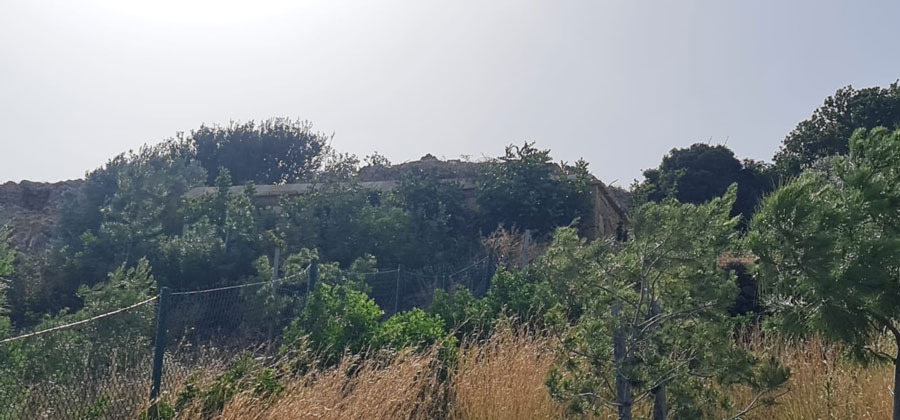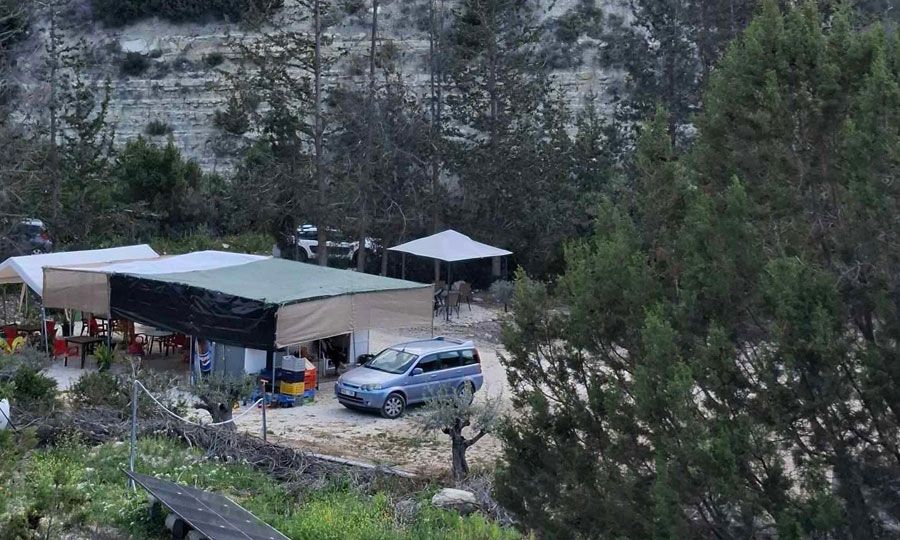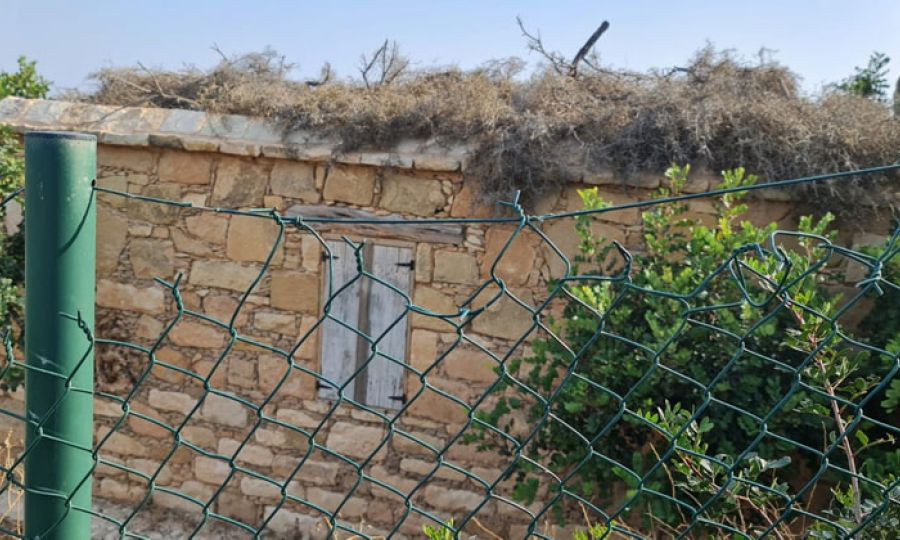
Newsroom
Nearly two years after serious environmental violations were first reported in the Akamas peninsula, a protected and ecologically sensitive area, illegal activity continues, seemingly without consequences.
According to Kathimerini's Apostolos Tomaras, the latest scandal involving three unauthorized refreshment stalls is just the latest in a long line of violations. Earlier, makeshift agricultural shacks known as 'styades' were being quietly converted into holiday homes, often right under the noses of the very authorities tasked with protecting the area.
Even the personal intervention of Interior Minister Konstantinos Ioannou last June...hasn’t stopped some individuals from pushing legal boundaries to create a new “status quo” in the area.
Even the personal intervention of Interior Minister Konstantinos Ioannou last June, following reports by Kathimerini, hasn’t stopped some individuals from pushing legal boundaries to create a new “status quo” in the area. This part of Akamas falls within the EU’s Natura 2000 network, meant to safeguard the long-term survival of Europe’s most threatened species and habitats.
The recurring pattern of violations lays bare the glaring responsibility of local authorities, especially in Akamas, and the state agencies meant to oversee and protect environmentally sensitive areas. These failures aren’t new, and political accountability remains elusive. Loopholes in enforcement and a lack of regular inspections have allowed a culture of impunity to take hold.
A Trojan horse for development
A deeper concern is the attitude of some local authorities, who openly back violators in the name of “development.” A striking case involves 25 agricultural makeshift shelters that were allegedly being turned into vacation homes. In one court case, the judge called out a local municipal member for siding with the defendant and delivering biased testimony. The court even noted that the outcome could benefit the official’s own family, who hold stakes in the area.
Adding fuel to the fire, the deputy mayor of Ineia publicly defended the illegal constructions and voiced frustration over the Interior Ministry’s decision to cut subsidies for the maintenance of these agricultural makeshift shelters. He claimed to represent 250 makeshift shelter owners, many of whom were pushing for similar conversions.

New violations, same story
Just as authorities were trying to handle the styades fiasco, the environmental NGO Terra Cypria uncovered fresh illegal activity inside Akamas. An inspection by the Paphos Planning Department, prompted by citizen complaints, found three makeshift structures: two operating as refreshment kiosks and one set up for selling local produce.

One stall was located near Avakas Gorge and another near the White River. Suspiciously, during the inspection, both kiosks had been recently relocated and shuttered, possibly tipped off in advance. The third case revealed infrastructure for water and electricity supply—raising questions about how far these makeshift operations had gone.
Even more concerning were the responses from local officials. Charalambos Pittokopitis, head of the Paphos Environmental Impact Assessment Committee, dismissed the violations, suggesting people complain because “Akamas sells.” Meanwhile, Marinos Lambrou, the mayor of Akamas, left open the possibility that these illegalities could be legalized after the fact.
Enforcement gaps and a culture of apathy
What’s especially alarming is that most of these violations were not uncovered by state oversight but by journalists and environmental groups. In Cyprus, environmental and planning laws often require a formal complaint before authorities step in. Even when a violation is discovered by chance, it often doesn’t lead to action.
This was the case with the makeshift shelters, where media coverage prompted the Interior Minister to call for on-site checks—something that should already be happening regularly, especially in high-risk zones like Akamas. As Terra Cypria’s executive director Kyriaki Michael told K, the real problem is that existing laws are rarely enforced. Violators typically face a minor fine, after which their illegal structures are retroactively legalized.

Akamas isn't the only casualty
The environmental crisis isn’t limited to Akamas. Similar violations are happening elsewhere, revealing a broader lack of environmental awareness and enforcement. For instance, in the Akrotiri Salt Lake—an internationally protected wetland under the Ramsar Convention, untreated sewage has reportedly been dumped, posing a serious threat to the ecosystem. Terra Cypria raised the alarm, and even though the issue reached Parliament, no meaningful action has followed.
Another worrying case involves a planned photovoltaic park in the communities of Analyontas, Lythrodontas, Mathiatis, and Katholikon. According to complaints, the project may lead to the destruction of hundreds of pine trees, again, within a Natura 2000 area.
Sources close to the issue point to deeper, systemic political failings. Over the years, vague promises made to local communities about developing protected lands have fueled speculative land purchases. Following the styades scandal, Kathimerini uncovered unusual land-buying activity on the edge of the Akamas forest, allegedly by developers eager to cash in.
Bottom line: While protected on paper, areas like Akamas are under siege by opportunists taking advantage of weak enforcement and political inaction. Without urgent and consistent oversight, environmental protection risks becoming a hollow promise.































